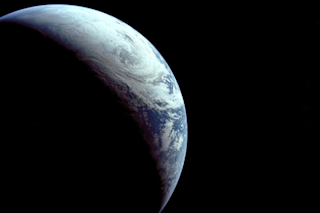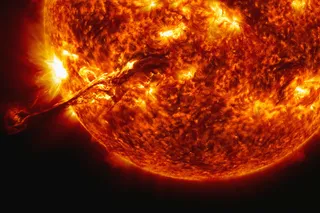Space, the final frontier,” announces James T. Kirk at the start of the first Star Trek episode. As the spaceship Enterprise flies past the screen, the voice sounds as though it was recorded in a very reverberant cathedral. I know space is a big place, but where are the reflections meant to be coming from? And anyway, space is silent or, to quote the catchy tag line from the 1979 movie Alien, “in space, no one can hear you scream.”
For an astronaut unfortunate enough to be caught outside the spaceship without a space suit, screaming to occupy the moments before asphyxiation would be pointless, as there are no air molecules to carry the sound waves. But Hollywood does not let anything as trivial as physics get in the way of a compelling soundtrack. The latest Star Trek film showed the outside of the soaring Enterprise accompanied by lots of ...














